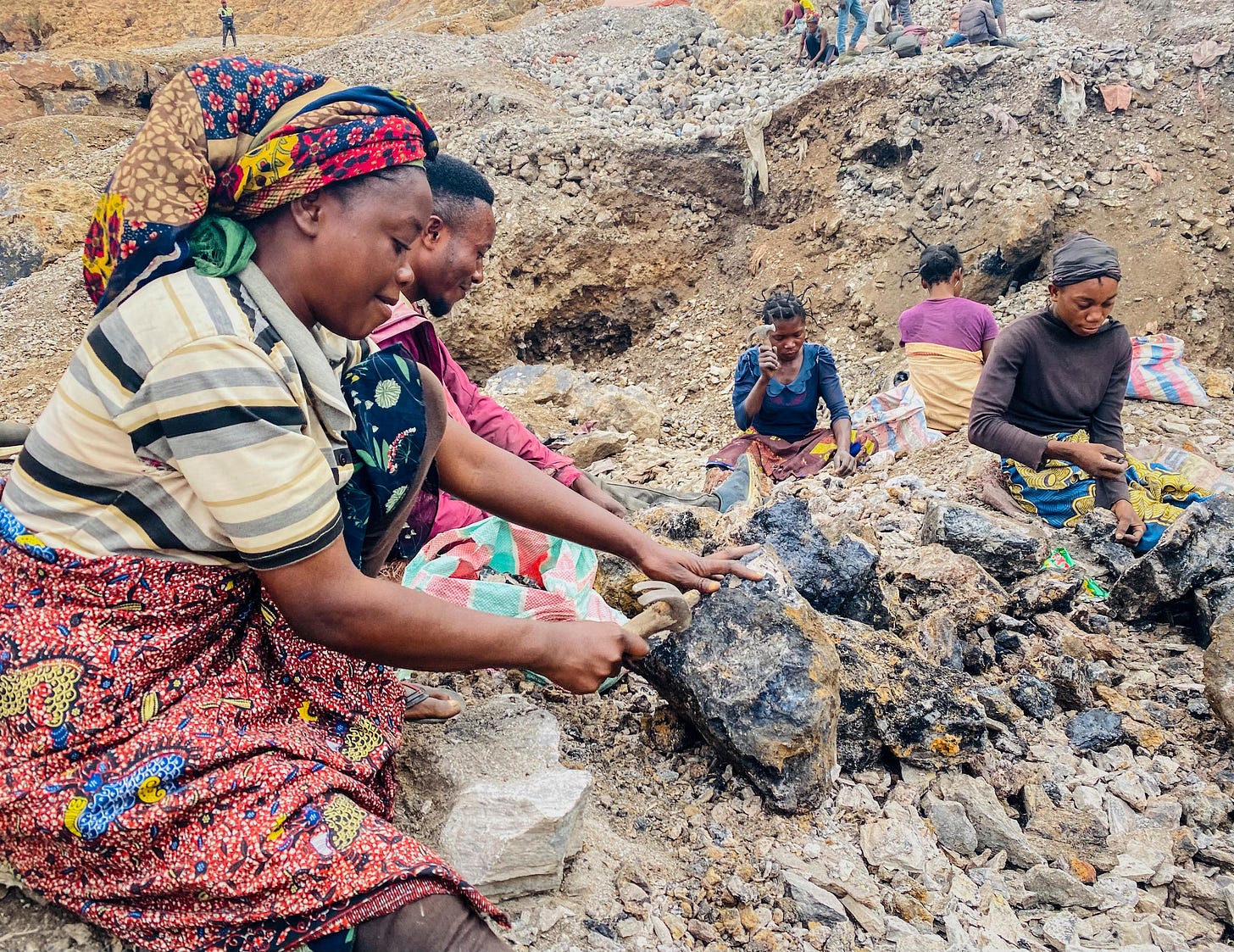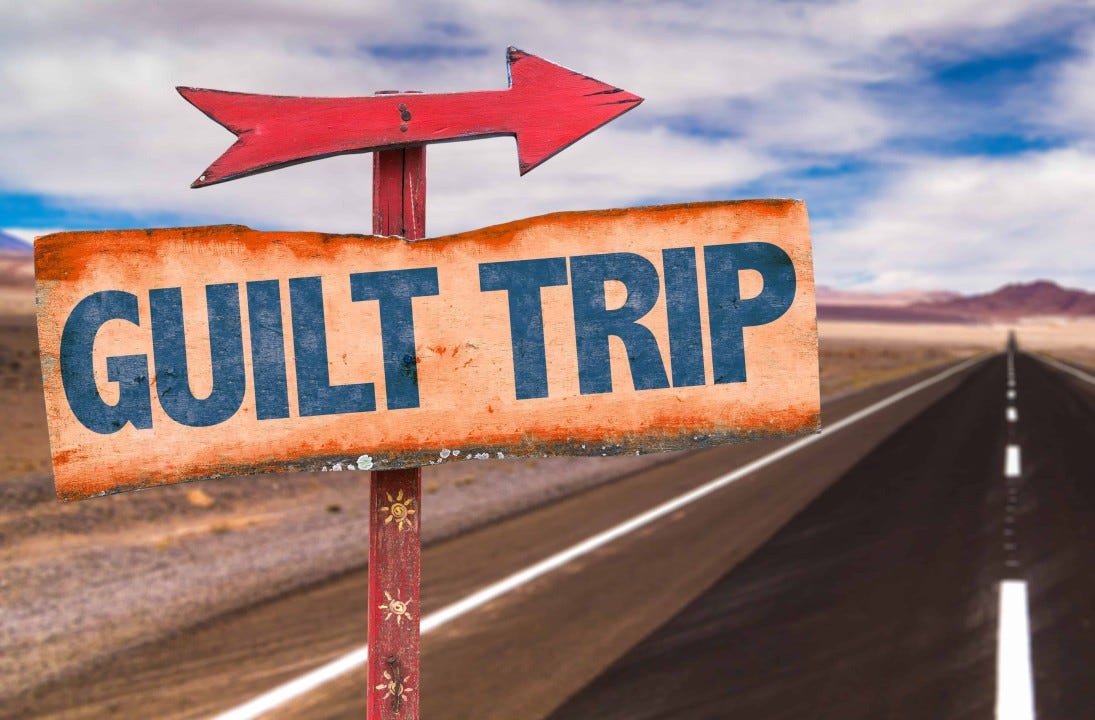The $0 Environmental Solution That Companies Don't Want You to Know
The greenest thing you can do costs absolutely nothing—and that's exactly why nobody's talking about it.
I'm about to tell you something that might make you angry. Not at me, but at an entire industry that's been selling you a lie wrapped in green marketing and good intentions.
The environmental movement has been hijacked by capitalism. And we a.k.a. the people who actually care about the planet - are the ones paying the price. Literally.
The Great Green Con
Picture this: You're scrolling through social media, and every other ad is selling you some eco-friendly product. Bamboo toothbrushes. Reusable water bottles made from "recycled ocean plastic." Electric vehicles that will "save the planet." Biodegradable everything.
The message is clear: You're a bad person if you don't buy our green products.
But here's what they don't tell you: Most of these solutions are bandaids on a gaping wound, and some are downright worse for the environment than what they replace.
Take electric vehicles a.k.a. the poster child of the green revolution. On the surface, they seem perfect. Zero emissions! Clean energy! The future!
But dig deeper, and you'll uncover a disturbing truth.
The Dark Side of "Clean" Technology
Phone and electric car batteries are made with cobalt mined in the Democratic Republic of Congo, where working conditions are described as a "horror show." Child and forced labor taint the supply chain of cobalt, a metal that is a critical component in the lithium-ion batteries that power these supposedly clean vehicles.
Meanwhile, rare-earth mining is notorious for the environmental hazards it poses, and China has been a major source of rare earth metals used in high-tech products, from smartphones to wind turbines. The environmental damage is so severe that experts argue that global companies that have benefited from access to these metals should help foot the bill for cleanup.
The result? China is tightening its grip on the global supply of key minerals that are needed in every car, particularly electric vehicle motors. They've essentially cornered the market on materials so toxic that most other countries won't even process them.
So your "clean" electric car? It's built on a foundation of environmental destruction and human exploitation that's been conveniently exported to places where you can't see it.
But wait.
It gets worse.
The Guilt Economy
Companies have figured out something sinister: environmental guilt is incredibly profitable.
They've created an entire economy around making you feel terrible about your daily choices, then offering to sell you absolution in the form of their products.
Can't afford the $60,000 Tesla? Here, buy this $15 bamboo coffee cup instead. At least you're "doing your part."
Never mind that you already have three perfectly good mugs at home. Never mind that the bamboo cup was shipped halfway around the world, wrapped in plastic, and will end up in a landfill when the novelty wears off.
The message is clear: consumption is environmentalism, as long as you're consuming the right things.
This is where most people get trapped. We want to help the planet, but we're told the only way to do it is to buy our way out of the problem. And when we can't afford the premium green products? We're made to feel like we're the problem.
The Truth Hidden in Plain Sight
But what if I told you there's a better way? A solution so simple, so accessible, so effective that it puts every green product to shame?
What if I told you it costs absolutely nothing?
What if I told you it's been right there all along, hiding in a phrase so common that we stopped paying attention to what it actually means?
Reduce. Reuse. Recycle.
You've heard it a thousand times. But here's what no one ever emphasized: the order matters.
This isn't just a catchy slogan. It's a hierarchy. A priority system. Reduce comes first because it's the most effective. When that fails, reuse. When even that fails, then—and only then—recycle.
But somehow, we've gotten it backwards. We obsess over recycling (the least effective option) and completely ignore reduction (the most effective one). Why? Because there's no money in telling people to consume less.
The Power of Reduction
Let me give you a real example from my own life.
I used to buy boba tea every day after work. It was my little treat, my way to decompress. One cup, every day, wrapped in plastic, topped with a plastic lid, served with a plastic straw.
Then, for health reasons, I stopped. Not for the environment. For my own wellbeing.
But here's what happened: By eliminating that one daily habit, I prevented 365 plastic cups, 365 plastic lids, and 365 plastic straws from entering the waste stream. Every single year.
One person. One small change. 1,095 pieces of plastic eliminated annually.
I didn't buy a single eco-friendly product. I didn't spend a penny on green technology. I didn't even make the change for environmental reasons. And yet, the environmental impact was massive.
Now imagine if 1,000 people made a similar change. That's over a million pieces of plastic eliminated. What about 10,000 people? A million?
Why Nobody Talks About This
The reason reduction isn't marketed to you is simple: there's no profit in it.
A company can't sell you "not buying their product." There's no premium markup on "using what you already have." There's no subscription model for "questioning whether you need this at all."
Reduction is the enemy of consumption, and consumption is the lifeblood of our economy. So instead, companies have rebranded consumption as environmentalism, and most of us have bought it—literally.
But here's the beautiful irony: reduction doesn't just help the planet more than any green product ever could. It also helps your wallet.
Every plastic cup I didn't buy saved me money. Every unnecessary purchase I avoided put cash back in my pocket. Every time I chose to repair instead of replace, I came out ahead financially.
This is environmental action that makes you richer, not poorer. It's accessible to everyone, regardless of income level. In fact, it helps the people who need it most—those of us who are broke.
The Reduce-First Mindset
So how do you start? It's simpler than you think.
Step 1: Audit your habits
Look at your daily routine. What do you consume automatically, without thinking? Coffee cups? Plastic water bottles? Fast fashion? Convenience foods?
Step 2: Question everything
Before any purchase, ask yourself three questions:
Do I actually need this?
Do I already have something that serves this purpose?
What would happen if I didn't buy this at all?
Step 3: Start small
Pick one habit. Just one. Maybe it's your daily coffee cup, like my boba tea. Maybe it's those Amazon impulse purchases. Maybe it's the new clothes you buy every season.
Change that one thing. See what happens.
Step 4: Count the impact
Keep track of what you're NOT consuming. It's incredibly motivating to realize that your small change eliminated hundreds or thousands of waste items per year.
Beyond Personal Choices
Now, I'm not saying individual action is the only solution to climate change. Systemic problems require systemic solutions, and corporations bear far more responsibility than individuals.
But here's what I am saying: you have more power than you realize, and you don't need to spend money to exercise it.
Every time you choose reduction over consumption, you're voting with your wallet. You're refusing to participate in the guilt economy. You're proving that environmentalism doesn't require wealth.
And maybe, just maybe, you're inspiring others to question the narrative they've been sold.
The Real Revolution
The most radical thing you can do in a consumption-driven society is to stop consuming.
Not completely though. We're not talking about becoming hermits. But consciously, deliberately, strategically.
When enough people start reducing instead of buying, the entire green-washing industry starts to crumble. When people realize they can save the planet AND save money, the premium pricing on eco-products becomes impossible to justify.
When reduction becomes popular, companies will have no choice but to actually reduce their environmental impact instead of just selling us products that make us feel better about it.
Your $0 Action Plan
So here's my challenge to you:
Identify one wasteful habit in your life. Just one.
Eliminate it for 30 days.
Track the impact—count every item you didn't consume, every dollar you didn't spend.
Share your results. Show others that the most effective environmental action costs nothing.
Remember: before you buy the biodegradable alternative, ask if you need to buy anything at all.
Before you invest in the latest green technology, see if you can solve the problem by using less.
Before you feel guilty about not affording eco-friendly products, remember that not buying anything is more eco-friendly than buying the greenest product on earth.
The greenest thing you can do costs $0. It always has.
The question is: are you ready to stop paying premium prices for your environmental conscience?
If this article changed how you think about environmentalism, share it with someone who's been guilt-tripped into buying green products they can't afford. Sometimes the most radical act is helping others realize they already have everything they need to make a difference.






This is great, dead on! Once we started living out of a suitcase 9 months out of the year, I completely reworked how I thought about buying things. And I realized I didn't need 90% of the stuff I purchased! Four handkerchiefs replaced a stream of tissue boxes... Repairing my socks replaced having to buy new ones for like 10 years...Good for you for making those changes. And thank you for publicizing them!
Want to sing sing this from the rooftops. Yes 100
I read a book recently that talked a lot about this - Stop Saving the Planet: An Environmentalist Manifesto by Jenny Price. Recommend.
Thank you for this post.